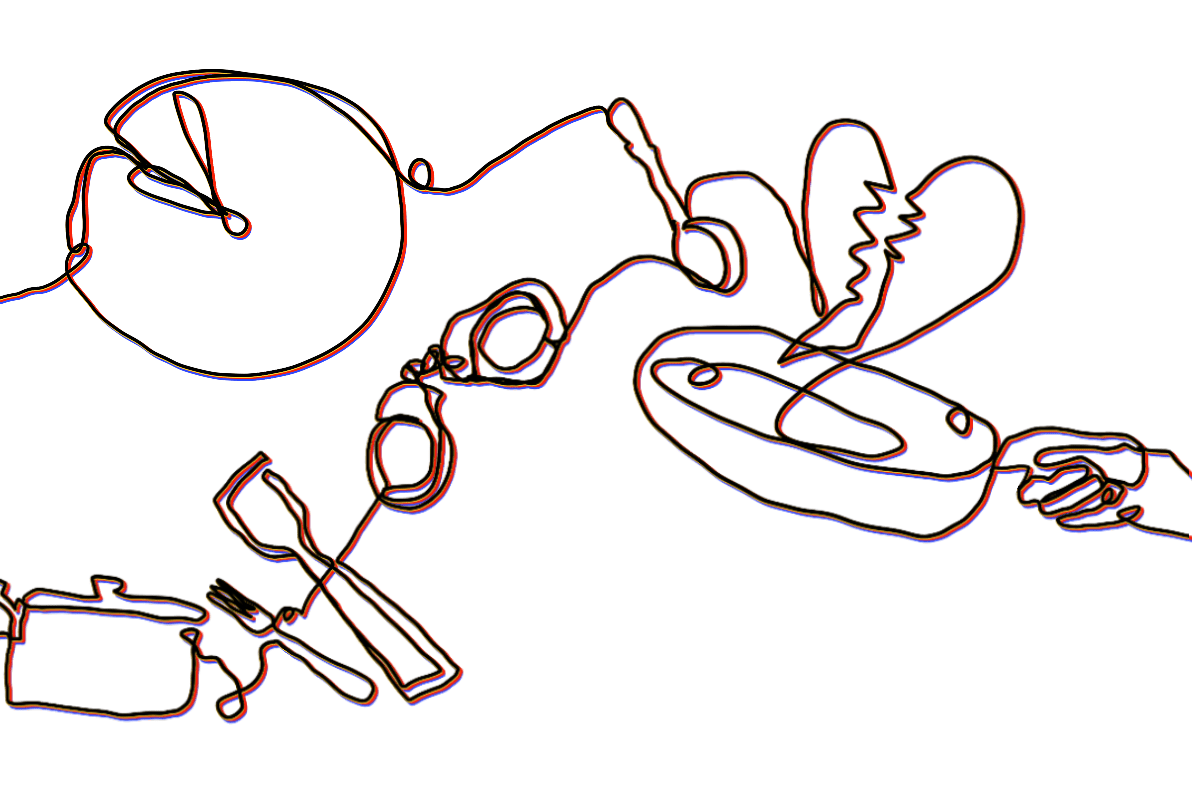
“Once you grow up and discover yourself as a human being you look at things for what they are.” —Marco Pierre White
Over thirteen years in catering taught me many things—some good, some bad. It grounded me, showcased discipline, allowed me to be creative, gave me a work ethic I pride myself on, and it allowed me to learn to love food, not just for myself, but for others too.
However, there is a shadow world to catering that is quite worrying and doesn’t get highlighted or discussed as often. It’s a world riddled with exploitation, drugs, alcohol, gambling and other addictions, which either seems to be ignored, or accepted because of the culture.
This article has partly been inspired by past experiences, but also by current social uprisings, in which a myriad of industries in the UK are going on strike to stick up for poor working conditions. This won’t be a direct comparison, nor will it entail “whataboutery;” it is something which simply made me reflect on those working in the catering industry.
Let’s start with that exploitation; again, I’m very aware that there are people in the world who are far worse off, people that are struggling financially and those that are finding work hard to find.
But those working in catering—whether as a chef, waiter, or kitchen porter—work long fucking hours. Not because they necessarily want to, but because they have to.
It’s pretty common practice, particularly in hotels, that you’ll have a contract for 35-40 hours. To be fair, that would be great—except for the fact you’ll more often than not have to sign a “waiver” to say you’ll be contracted to 40 hours, while knowing that, in reality, you’ll work a hell of a lot more. In most cases, a catering workweek can easily average 50-60 hours; in extreme—yet by no means irregular cases—it will be 70+.
This can leave you in an awkward position. Either you sign the waiver and crack the fuck on and keep your mouth shut. Or you can not sign it, which I have never seen happen, and you just work the forty hours.
If that were to happen, you’d probably work up until dinner time on a Wednesday and get off. Again, this hypothetical wouldn’t happen in the real world—you’d have to have a large set of proverbial balls on you if you insisted on it. In reality, you’d be bullied out of that kitchen before you left to get changed—another common practice that is just accepted.
Kitchen camaraderie is built on togetherness, backing each other up, and ultimately you end up working with people you’ll see more of than your actual family or friends. You don’t ditch them. And if you do, it’s not the career for you.
Chefs can work different hours depending on the type of establishment—and interestingly, researching this for evidence just brought up the bullshit hours I previously mentioned. I don’t know a single chef that works only 40 hours a week; their contract might say so, but they don’t. And why would they advertise otherwise? No one would apply if they knew the truth.
This brings on another issue. Your wage or salary will reflect your “contracted” hours. So on the face of it, it might appear that you’re getting a somewhat respectable remuneration, but when you work it out—something I did numerous times and I wouldn’t recommend—you’re more likely to be on half the minimum wage… if not less.
Why? “Because you love what you do!” “You’ve a passion for food!” “You enjoy the camaraderie!” “You’re developing and learning!” Possibly all of that. When you start in catering and are young with no responsibilities and essentially no worries in the world, it’s probably something you don’t think about. But as you get older, you do.
Being a chef is something I trained for. It’s a highly skilled job. You work with knives, gas, and fire in high intensity surroundings, under constant pressure to prepare, deliver, and clean, often with lunatics, people who can turn up drunk, on drugs, having not been to bed, and because of the stress, chuck in anger issues also. You’ll cut yourself, burn yourself, ache from head to toe, sweat from head to toe, be stressed from head to toe. All for less than minimum wage. But it’s ok though, you made a sublime chicken liver parfait. Well done.
How is this culture just accepted? Where is the support for people who are struggling? This isn’t about wokery, or “woe is me”—it’s tough out there, I get it. But let’s have some sort of balance. Teachers, rail, postal and NHS workers in the UK have been on strike recently for similar reasons. Fair play to them, I support that. Yet I hear nothing from the catering industry, and I know why.
You’re nothing. You can protest all you like, you’ll be replaced by someone who won’t complain or stick up for themselves. There’s nothing for them to fall back on, no union, no support. Nothing. Essentially it’s a modern day Victorian Warehouse.
Chefs can be a different breed though, partly because they have to be. You’d be surprised by the amount of people who think it’s a piece of piss, who misplace the idea of working in a kitchen to The Great British Bake Off… they wouldn’t last an hour in a professional kitchen.
Gordon Ramsay may be a somewhat fictional character dramatized for TV, but I’ve worked for people like that—and much worse. Owners who think they know everything, can do everything, but in essence are the ones that flap, stress and take it out on everyone else. And you’re supposed to just accept being spoken to like a worn out piece of shit who’s worked to the ground over a plate of food because “that’s the industry.”
I’ve worked in various establishments where I’d reached breaking point and did the math. In many places, it works out better to be a server than a chef. You can literally carry plates for 20 hours less and get more money.
I can train to be a professional chef, work 60/70 hour weeks, master my craft and earn buttons, develop a sore back, high anxiety and stress levels and a severe lack of sleep, or I can carry a bowl of soup to Mrs Potts and be tipped for doing so. Make it make sense!
Sick of family life? Don’t feel the need to have friends? Want needless, excessive stress on your shoulders? Then catering is for you!
For balance, there are some perks to being a chef. That aforementioned camaraderie is like nothing else. You have to get on with people you spend so much time with, and there is nothing better than the elation of a Friday or Saturday night service when everything is flowing, you’re smashing the shit out of it, you’re under severe pressure, but you’ve got it, you’re sweating, you have no time to think. It’s pure escapism—but only because there is no time for anything else.
Before you know it, it’s over. The relief hits you and everyone is happy. That’s the good bit—probably the only bit I miss. But the novelty wears off. Then you have to clean everything and you’ve more than likely still got another hour or two to go before you start to plan the next day… or the same day, if you work past midnight.
I’m not suggesting all chefs join a union—this just wouldn’t happen, and it’s probably not even worth the fight. You’re a number, you’re easily replaced. And your replacement will be bullied until they sink or swim. I just want to raise awareness that this is a thing that happens regularly. Something that, now that I’m on the other side of it, I simply can’t understand.
And I’ve not even begun to scrape the surface of the shadowy underbelling to catering. Come back for part two, in which I will discuss the alcohol, drug, and gambling problems. And coffee and smoking. And… probably just addiction in general, to be honest.



